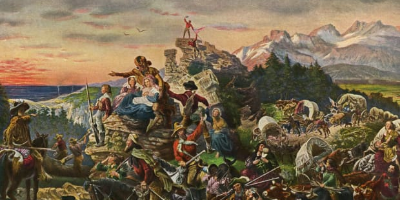The Korean War
Category: Otro
Actualizado: 17 may 2023
The Major Events of the Korean War
Autores
Created byYurianna Miles
Attachments
Eventos
Legacy
The Korean War was one of the first
battlegrounds of the Cold War era, yet in Britain
it remains a forgotten conflict, overshadowed
by World War Two and the other Cold War
battles that followed it.
But its impact is still felt by those who live with
its legacy – from the soldiers who fought, to the
Korean families who remain separated on
either side of the 38th Parallel.
June 25th 1950 - July 27th !953Períodos
How the Koren War Began
when communist North Korea invaded South Korea.
But its origins lie in the Partition of Korea, which took
place at the end of World War Two.Partition of Korea
Korea had been a Japanese colony from 1910 to 1945, when it was liberated
by Allied forces at the end of World War Two. Due to concerns over ‘spheres of
influence’, the United States and the
Soviet Union agreed to divide Korea
into two occupation zones: the communist
Democratic People’s Republic of Korea (North Korea)
and the US-backed Republic of Korea (South Korea).Partition of Korea, 1945
Due to Cold War tensions, the zones
became two sovereign states,
divided at the 38th Parallel, in 1948.
Although the US and the Soviet Union withdrew
their troops in 1949, tension between the two nations
continued to mount.Invasion of South Korea
On 25th June 1950, North Korean forces
crossed the 38th Parallel into South Korea.
Their aim was clear: to reunify the Korean
Peninsula as a communist state.
The newly-formed UN called on its members to
protect South Korea, with US troops swiftly
deployed. They were joined by the troops of
many nations, including Britain, Canada,
Australia, India, Ethiopia, France, and the
Philippines.Landing at Inchon, September 1950
By August, North Korean forces had overrun
vast swathes of South Korea, with UN forces
retaining a small defensive perimeter in the
country’s southeast, near Busan. In September,
UN Commander General MacArthur launched a
daring amphibious landing at Inchon (now
called Incheon), a port on South Korea’s
western coast held by North Korea.China Intervenes, Nov 1950
His forces repelled the North Korean Army and
rapidly advanced north across the 38th Parallel
into North Korea, capturing the capital
Pyongyang. By late November, they had come
within 40 miles of the Chinese border. At this
stage, the Chinese People’s Volunteer Army was
deployed to North Korea to push the UN back
into the south.The Battle of the Imjin River, April 1951
The Battle of the Imjin River was the bloodiest
battle endured by the British Army since World
War Two. On 22nd April, Chinese forces
attacked the British 29th Brigade, which was
supported by Belgian forces along the Imjin
River. Heavily outnumbered, troops of the 1st
Battalion, Gloucestershire Regiment held their
position for three days before they were forced
to retreat amid heavy casualties. 527 men were
taken as Prisoners of War by the Chinese.The Battle of the Imjin River, April 1951
The brave actions of British and Belgian forces
gave UN forces the chance to withdraw to a
stronger position and block the Chinese
advance on Seoul.Stalemate, 1951-53
The Battle of the Imjin River marked the end of
the mobile phase of the war, demonstrating
that the Chinese and North Koreans did not
have the capacity to defeat UN forces. The war
entered a period of stalemate, with the UN
undertaking a naval blockade and strategic
bombing campaign against North Korea.
US bombs, including napalm, incendiaries and
explosives, devastated North Korea, killing
countless civilians and destroying an estimated
85 percent of its buildings.Armistice, July 1953
On 27th July 1953, after two years of
negotiations, an armistice was agreed between
North and South Korea. While the armistice
ended hostilities, no peace treaty has ever been
signed to re-establish relations. In that sense,
the war has never ended.Legacy
The Korean War was one of the first
battlegrounds of the Cold War era, yet in Britain
it remains a forgotten conflict, overshadowed
by World War Two and the other Cold War
battles that followed it.
But its impact is still felt by those who live with
its legacy – from the soldiers who fought, to the
Korean families who remain separated on
either side of the 38th Parallel.
Comments